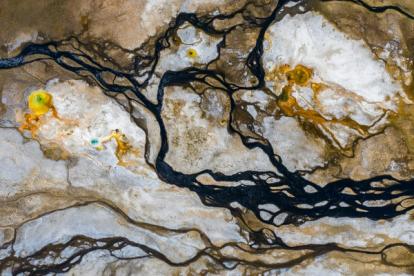
SLR joins the Critical Minerals Association (UK)
- Post Date
- 25 November 2024
- Read Time
- 5 minutes

SLR is excited to announce it has joined the Critical Minerals Association (CMA) of the UK.[1] The CMA is an association of companies involved in developing secure, responsible critical mineral supply chains. Since inception in 2020, the CMA has grown to include a range of companies across the critical minerals value chain – from exploration and mining through to processing and recycling, investment and technology. The association aims to act as a collective voice to stakeholders involved in the critical minerals space – including government and civil service organisations involved in the development of critical minerals projects.
The CMA operates through a team of staff and partner organisations providing diverse backgrounds and expertise. As well as providing an organisation to promote collaboration between supply chain actors and supporting companies, the CMA produces reports and insights to inform general public along with influencing government policy and improving standards. There are a number of working groups that each have a specific role in producing materials to assist with these goals – specifically environmental, social and governance (ESG), international and domestic mining, public perception and engagement and circular economy. SLR aims to be part of these groups to provide specific expertise.
What are critical minerals?
The term critical mineral is subjective and has been defined in a multitude of ways depending on the context. In general, for a mineral or metal to be considered as critical it is required to have a high potential supply risk along with a high strategic value to a particular country or region. For example, the European Union currently has 34 separate critical minerals defined which have high importance for the EU economy and for which there is a high risk of supply disruption of those materials for use in the EU. This includes metals such as copper, aluminium, lithium and nickel – along with minerals such as graphite – as key enablers of energy transition technology. Other examples include tungsten, which is a strategically important metal for the defence sector. The lists of critical minerals change over time reflecting the changes to the supply chains along with influence on the economy, and also as methodologies to assess them get updated. Influences such as geopolitical events have significant impacts on their assessment – such as the conflicts in Ukraine and the Middle East, the COVID-19 pandemic and political regime changes.
The UK in particular has an issue with primary extraction as well as processing and manufacture of products due to the disappearance of the mining industry and a history of offshoring many of these processes. As noted by the UK’s Critical Minerals Intelligence Centre, currently the “UK and the EU are almost wholly dependent on imports of these materials. Availability is compounded by their low substitutability and recycling rates, commonly less than 1 per cent. Shortages of critical raw materials may affect UK businesses and adversely influence economic growth and prosperity”[2]. A number of recent legislation changes have come into effect to diversify supply chains and boost domestic supply – this includes the Critical Raw Materials Act (CRMA). If you'd like to learn more about the CRMA, read our article below.
Understanding the European Commission's new Critical Raw Materials Act (CRMA)
As part of the European Green Deal, the European Commission (EC) has agreed on new legislation referred to as the Critical Raw Materials Act (CRMA) to strengthen production, processing, and recycling of strategic raw materials in Europe and to diversify supply chains.
Click here
Aligning with SLR’s aims
The CMA is an organisation well-aligned with SLR’s main goal of Making Sustainability Happen. We work cross-sector and bring expertise from a wide range of global industries to ensure we deliver positive impact for our clients with sustainable practices at the heart. SLR has a number of specific teams that work extensively in the critical minerals value chain:
- Our Mining Advisory team provides technical guidance for exploration and mining companies along with investment groups on resource and reserve development throughout the project lifecycle, including the support of listings, disputes and independent audits/reporting.
- Our Energy Advisory team provides a fully integrated service, covering all technical, commercial and environmental aspects of the project lifecycle from exploration through production to decommissioning.
- Our Sustainable Finance team understands the financial sector’s requirement to fund critical minerals projects and also embed sustainability practices in investment decisions.
- Our Responsible Sourcing Advisory team have deep experience in supply chain due diligence mapping. We provide services in ESG performance, responsible sourcing and responsible mining for the whole battery value chain, including for the leading OEMs and the mining sector.
- Our ESG Advisory teams add value through corporate sustainability disclosure and strategic ESG thinking. Our ESG toolkit can be deployed to assist at the corporate, fund and / or portfolio company / business unit level and at all stages of the investment cycle.
- Our Sustainable Waste Management team work with clients to design projects in line with circular economy principles, working in multi-disciplinary teams combining engineering and scientific expertise.
- Our Planning and Compliance specialists provide comprehensive environmental management, permitting and compliance services with a team of cross-industry consultants including numerous ex-regulators and experienced industry professionals working across the UK and internationally.
Collaboration
SLR is excited to be joining the CMA and be part of a group of like-minded companies that are aiming to improve the critical minerals industry. We hope to bring our diverse experience across the value chain through collaboration with the CMA team and their associated partners, to ensure the production and use of critical minerals through the value chain is just and sustainable.
If you'd like to find out more information, please get in touch.
Contact us-----------------------
References

